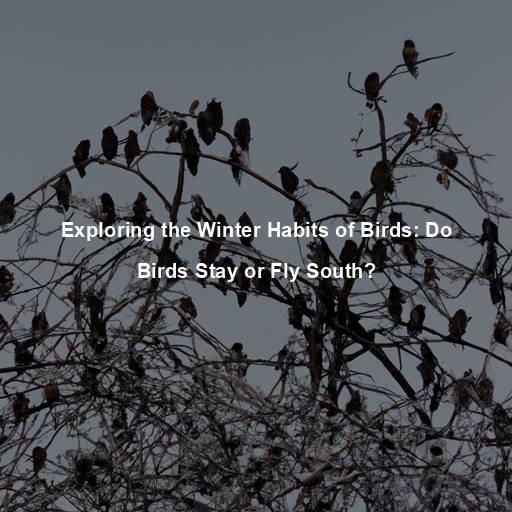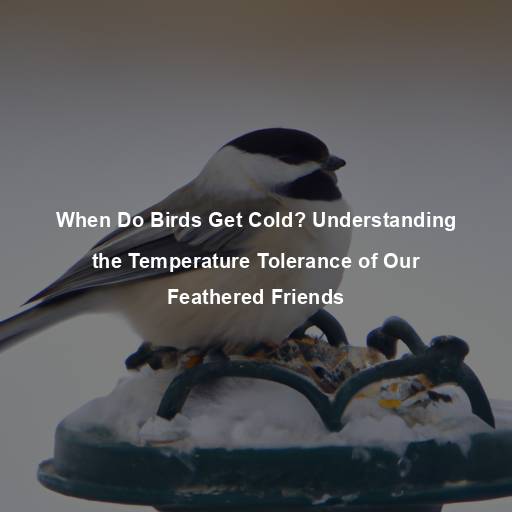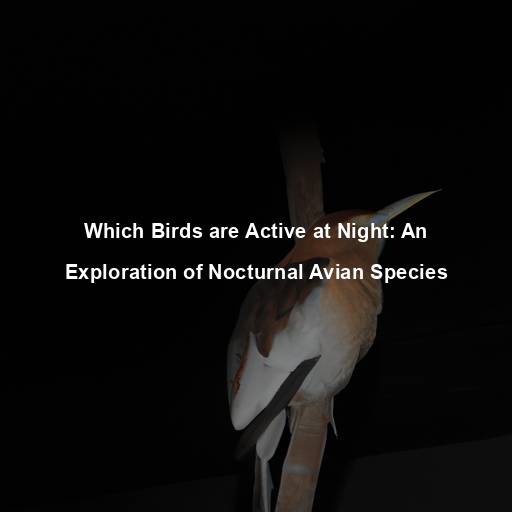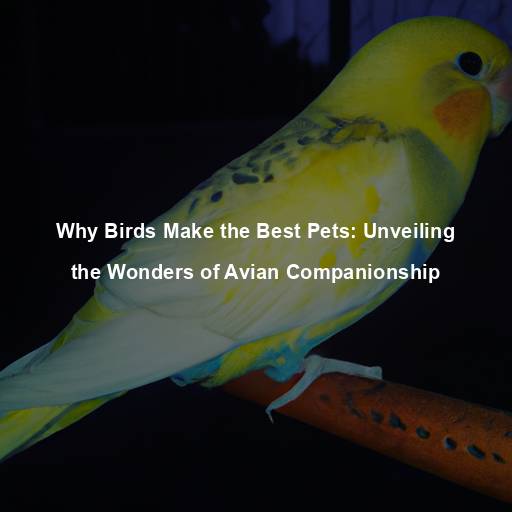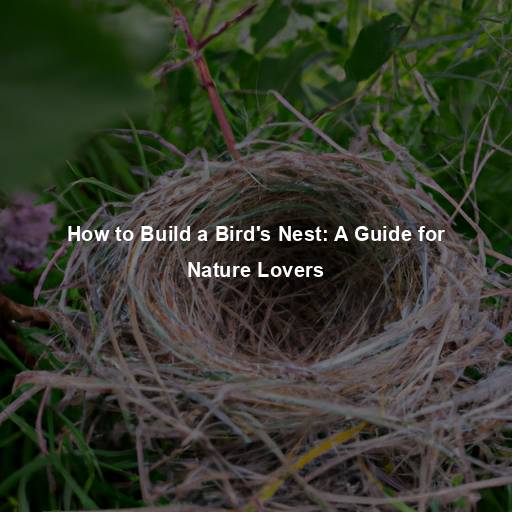What Birds Can You Shoot in the UK?
Last Updated on November 12, 2023 by Evan
Contents [hide]
- 0.1
- 0.2 The Regulatory Framework
- 0.3 Protected Bird Species
- 0.4 Non-Protected Bird Species
- 0.5 Shooting Seasons and Licensing
- 0.6 Conservation and Ethical Considerations
- 0.7 Understanding the Ecological Balance
- 0.8 Sustainable Harvesting Practices
- 0.9 Conservation Initiatives
- 0.10 The Role of Licensing and Regulation
- 0.11 The Ethical Dimension
- 0.12 The Joy of Bird Watching
- 0.13 The Importance of Education and Awareness
- 0.14 Embracing a Balanced Approach
- 0.15 Supporting Local Economies
- 0.16 Tourism and Rural Development
- 0.17 Supporting Conservation Funding
- 0.18 Inclusivity and Accessibility
- 0.19 Conservation Through Sustainable Land Management
- 0.20 The Role of Research and Innovation
- 0.21 Building a Sense of Community
- 1 FAQs: What Birds Can You Shoot in the UK
- 1.1 Can I shoot any birds in the UK?
- 1.2 What are game birds?
- 1.3 Are there any protected birds that cannot be shot?
- 1.4 What about pest birds?
- 1.5 How can I legally shoot birds in the UK?
- 1.6 Can I shoot birds on my own property?
- 1.7 Are there any qualifications required to shoot birds?
- 1.8 What are the consequences of shooting birds illegally?
For generations, the UK has embraced the tradition of bird shooting, offering a captivating blend of adrenaline and nature’s embrace. However, it is imperative to grasp the intricate web of regulations that guides this age-old pursuit, safeguarding the diverse avian population and their precious habitats. Delve into this enlightening piece, as we unravel the legal framework surrounding bird shooting in the UK, revealing the species that may be lawfully pursued.
The Regulatory Framework
To protect birds and their habitats, the UK has implemented laws and regulations that govern bird shooting. The primary legislation in this regard is the Wildlife and Countryside Act 1981, which provides the legal framework for bird conservation and the management of shooting activities. Under this act, certain species are protected and shooting them is strictly prohibited.
Protected Bird Species
The Wildlife and Countryside Act of 1981 gracefully shields a bountiful assortment of avian marvels, whose fluttering presence graces the lands of the United Kingdom. Alas, dear reader, let it be known that this blessed realm vehemently disapproves of any nefarious attempts to harm these sacred creatures. Forsooth, should one dare to inflict harm upon these esteemed feathered beings, rest assured that the law will come crashing down upon them with the weight of a thousand feathers, delivering severe consequences and retribution. Behold, among the illustrious ranks of these protected birds, one may find the regal Peregrine Falcon, the enchanting Barn Owl, and a pantheon of other extraordinary avian beings.
With its striking red-brown hue and distinctive forked tail, the Red Kite, scientifically known as Milvus milvus, is an awe-inspiring bird of prey that captures the imagination. This protected species is scattered across different regions of the United Kingdom, adding a touch of majesty to the landscape. If you’re fortunate enough to spot one soaring through the sky, prepare to be captivated by its sheer beauty and grace.
The enigmatic Marsh Harrier, scientifically known as Circus aeruginosus, commands attention with its modest yet captivating allure. As we navigate the ever-changing landscapes of our beloved United Kingdom, we are bestowed with the privilege of observing this medium-sized avian masterpiece. Its presence alone is remarkable, albeit burdened with the weight of vulnerability as its population dwindles. Nestled within the serene embrace of our wetland sanctuaries, the Marsh Harrier’s ethereal flight evokes an elusive elegance that both enchants and perplexes.
- Peregrine Falcon (Falco peregrinus): Considered the fastest bird in the world, the Peregrine Falcon is protected under the Wildlife and Countryside Act 1981. Its incredible speed and aerial hunting skills make it a fascinating species to observe.
Non-Protected Bird Species
While shooting protected bird species is strictly prohibited, there are several bird species in the UK that can be legally targeted. These species are not subject to the same level of protection, but it is essential to ensure that their populations remain sustainable. Some of the non-protected bird species that can be shot in the UK include:
Step into the mesmerizing world of the majestic Pheasant (Phasianus colchicus), a prized game bird that effortlessly captivates both the eye and ear. This avian wonder, with its vibrant hues adorning its feathers and its unmistakable cry echoing through the countryside, ignites the senses and lures the hearts of shooting aficionados. Explore the enigmatic allure of this magnificent bird as we unravel its secrets and celebrate its role in the age-old tradition of shooting pursuits.
Nestled in the untamed depths of the enchanting upland areas, roams the captivating Red Grouse, a species that has captured the hearts of game bird enthusiasts across the charming UK. With traditions deeply rooted in the fabric of the land, spirited hunters embark upon an exhilarating chase on the radiant tapestry of heather moorland. Every trigger pull resonates with a timeless allure, weaving a spellbinding narrative that traverses the realms of both tradition and sport.
The Woodcock, scientifically known as Scolopax rusticola, graces the UK with its presence as a migratory bird during the winter months. With its enigmatic demeanor and distinctive long beak, the pursuit of this elusive creature demands both skill and immense patience. Shooting a Woodcock brings forth a sense of perplexity, as one navigates the complexities of capturing its essence in a fleeting moment.
Shooting Seasons and Licensing
To ensure the sustainability of bird populations, shooting seasons have been established for certain species in the UK. These seasons dictate when shooting is permitted and help prevent excessive hunting. It is crucial for shooting enthusiasts to adhere to these seasons and obtain the necessary licenses before engaging in shooting activities.
In the world of shooting sports, the British Association for Shooting and Conservation (BASC) stands tall as a trusted authority, offering a plethora of invaluable insights into shooting seasons and licensing obligations. Collaborating hand-in-hand with esteemed environmental powerhouses like Natural England and the Scottish Natural Heritage, BASC passionately champions both responsible shooting traditions and the conservation of precious wildlife. Through their vast expertise, they pave the perplexing path of shooting regulations with utmost dedication, leaving no room for uncertainty in this thrilling realm.
Conservation and Ethical Considerations
When it comes to bird shooting, there’s a need to balance our love for the sport with a deep commitment to protecting our feathered friends and their delicate ecosystems. Responsible shooting aficionados understand the importance of preserving bird populations and adhering to strict limits on bagging. It’s all about being mindful, showing reverence for nature, and never compromising the well-being of our avian companions.
Additionally, it is crucial to stay informed about any changes in legislation and conservation efforts. By being proactive and engaging in ongoing education, shooting enthusiasts can contribute to the preservation of bird species and the environment.
Understanding the Ecological Balance
Bird shooting, just like any other activity we humans engage in, has the power to shake up the fragile harmony of ecosystems. We must grasp the vital importance of birds in preserving the delicate equilibrium of nature and the wide-ranging repercussions of upsetting their populations due to a surplus of hunting.
Birds play a vital role in various ecological processes, including pollination, seed dispersal, and insect control. By targeting specific bird species for shooting, there is a risk of disrupting these processes, which can have far-reaching ecological implications. It is essential to consider the broader ecological context when engaging in bird shooting activities.
Sustainable Harvesting Practices
With the intention of safeguarding the delicate balance of nature, conscientious methodologies have emerged to counteract the potentially adverse repercussions of bird shooting. These innovative approaches are designed to harmonize the extraction of avian species with the overarching goal of fostering their rejuvenation and flourishing.
In the captivating realm of bird hunting, a vital practice emerges that aims to strike a balance between enjoyment and conservation. Welcome to the mysterious world of bag limits, an enigmatic concept that dictates the number of birds one can lawfully capture. Expertly crafted through a fusion of scientific wizardry and population evaluations, these limits serve as guardians of the avian realm, safeguarding their health and preserving their destinies. Embracing the essence of these limits is paramount, a perplexing dance to ensure the endurance of bird species for generations yet to come.
Conservation Initiatives
Conservation organizations and initiatives play a pivotal role in bird conservation efforts. These organizations work towards protecting bird habitats, conducting research on bird populations, and raising awareness about the importance of bird conservation.
In the enchanting kingdom of the United Kingdom, dedicated organizations like the illustrious Royal Society for the Protection of Birds (RSPB) and the illustrious Game & Wildlife Conservation Trust (GWCT) have embarked on a noble quest to safeguard the delicate balance of birdkind and their intricate habitats. With fervent determination, they join hands with esteemed government agencies, possessive landowners, and the fervent public to champion the art of responsible bird shooting and make their indelible mark on the tapestry of conservation. A harmonious dance of collaboration unravels, as these esteemed entities strive to weave their magic and contribute their valuable grains of sand to the vast desert of conservation efforts. Step by perplexing step, they paddle against the unpredictable tides of uncertainty, driven by an unquenchable thirst to protect our winged companions and safeguard the very essence of nature’s symphony.
The Role of Licensing and Regulation
Licensing and regulation are crucial components of bird shooting in the UK. They ensure that shooting activities are conducted in a controlled and responsible manner, minimizing the potential negative impacts on bird populations.
Obtaining the necessary licenses and adhering to regulations not only ensures compliance with the law but also demonstrates a commitment to responsible shooting practices. Licensing authorities, such as Natural England and the Scottish Natural Heritage, oversee the issuance of licenses and provide guidance on legal requirements, shooting seasons, and bag limits.
The Ethical Dimension
Ethics play a significant role in bird shooting, shaping the attitudes and behavior of shooting enthusiasts. Ethical considerations extend beyond legal compliance and encompass principles of fairness, respect, and empathy towards the birds being targeted.
Responsible shooters prioritize clean kills and humane practices, ensuring that birds are not subjected to unnecessary suffering. They also respect the habitats and nesting areas of birds, minimizing disturbance and preserving the integrity of the environment.
The Joy of Bird Watching
The world of bird enthusiasts is a multifaceted one, where the traditional lines between bird shooting and bird watching blur into an intriguing tapestry of passion and curiosity. While some may raise an eyebrow at the juxtaposition of these seemingly conflicting activities, a closer look reveals a shared thread of awe and admiration for our feathered friends. For those who revel in the thrill of bird shooting, the experience can also awaken a curiosity that sparks a desire to observe and understand birds in their natural element, creating an unexpected and symbiotic relationship between the hunter and the observed.
Bird watching provides an opportunity to observe birds without causing harm, allowing for a different kind of engagement and appreciation. Many shooting enthusiasts also take part in bird watching activities, contributing to citizen science initiatives and supporting bird conservation efforts through their observations.
The Importance of Education and Awareness
In the interconnected world we live in, education and awareness hold the power to transform our perspectives on bird shooting and conservation. Through the dissemination of precise and enlightening information, we can unravel the complexities surrounding these practices and spark a newfound admiration for the magnificent avian species that grace our skies. By illuminating the importance of conservation efforts, we pave the way for a future where the preservation of our feathered friends becomes a shared responsibility, inviting us all to embark on a journey of captivating discovery and perplexing wonder.
In a bid to promote an enlightened approach towards bird shooting, one can be part of informative workshops, enlightening seminars, and impactful outreach programs. These endeavors aim to instill in individuals a sense of responsibility, showcasing the significance of conservation efforts and acknowledging the pivotal role birds play in maintaining ecological balance. By nurturing a community that values ethical shooting and preservation, we pave the way for a sustainable future for bird populations in the United Kingdom.
Embracing a Balanced Approach
It is essential to approach bird shooting with a balanced perspective, considering both the recreational aspects and the conservation implications. By adopting sustainable practices, adhering to regulations, and prioritizing ethical considerations, shooting enthusiasts can enjoy their sport while contributing to bird conservation efforts.
As we embark on our shooting journeys, it is paramount that we not only adhere to the regulations set before us, but also cultivate a profound reverence for the beauty of nature. In assuming our role as stewards of the environment, we unlock the gateway to a harmonious coexistence with the world around us. By embracing a mindful and balanced approach, we pave the way for future generations to bask in the awe and excitement that bird shooting in the UK has to offer.
Disclaimer: This article provides general information and should not be considered legal advice. It is essential to consult the relevant authorities and organizations for specific guidelines and regulations regarding bird shooting in the UK.## The Economic Significance of Bird Shooting
Supporting Local Economies
Bird shooting not only holds cultural and recreational value but also contributes significantly to local economies. The sport attracts enthusiasts from various regions, creating opportunities for local businesses and communities to thrive.
The world of shooting estates holds a captivating tapestry of roles, where gamekeepers, guides, and support staff dance in harmonious coordination, weaving together the intricate tapestry of shooting activities. They stand as guardians of nature’s delicate balance, striving to ensure the welfare of both the avian inhabitants and the passionate shooters. However, the realm of shooting estates extends its enchantment beyond the boundaries, breathing life into adjacent sectors like the welcoming hospitality industry, embracing hunters with open arms as they explore local accommodations and relish tantalizing culinary experiences during their enthralling hunting escapades.
Tourism and Rural Development
Bird shooting has the potential to drive tourism and rural development in areas with suitable habitats for shooting activities. The natural landscapes and biodiversity attract both domestic and international visitors, stimulating the local economy and creating employment opportunities.
Many shooting estates actively engage in conservation efforts, managing habitats to support not only game birds but also other wildlife species. These conservation initiatives contribute to the overall biodiversity of the area and enhance its appeal as a tourist destination, attracting nature enthusiasts and bird lovers.
Supporting Conservation Funding
Bird shooting plays a significant role in generating funds for conservation efforts. Shooters often contribute financially to conservation organizations and initiatives, recognizing the importance of preserving habitats and protecting bird species.
Through their participation in shooting activities, enthusiasts indirectly support conservation projects aimed at enhancing biodiversity, restoring habitats, and conducting research on bird populations. These projects help ensure the long-term viability of bird species in the UK.
Inclusivity and Accessibility
Engaging in the captivating sport of bird shooting goes beyond its storied past with the elite crowd. It now embraces a vibrant tapestry of individuals, gracefully weaving threads of inclusivity and accessibility into the fabric of outdoor pursuits. From different walks of life, diverse enthusiasts find their wings in this exhilarating activity, fostering a harmonious symphony of backgrounds and experiences. This sport’s evolution mirrors society’s progress, spreading its wings wide to beckon individuals from all social and economic avenues to seize the thrill of the great outdoors.
Organizations such as the British Association for Shooting and Conservation (BASC) actively work to promote inclusivity and accessibility within the shooting community. They provide training programs, workshops, and initiatives aimed at encouraging individuals of all ages and backgrounds to participate in shooting activities responsibly.
Conservation Through Sustainable Land Management
In the realm of rural sanctuaries, shooting estates unveil a captivating harmony between sustainable land management and the preservation of wildlife. By assimilating the tapestry of nature’s wonders, these enclaves cultivate a delicate balance, nurturing game birds alongside an array of other species. Engaging in practices like resurrecting habitats, asserting control over predators, and forging channels for the wanderers of the wild, shooting estates become vibrant tapestries of biodiverse artistry.
By managing land for shooting purposes, estates contribute to the preservation of diverse habitats, supporting a range of bird species and other wildlife. The careful management of these areas promotes biodiversity, enhances ecosystem services, and helps maintain the overall health of the environment.
The Role of Research and Innovation
In the world of avian pursuits, the art of shooting takes flight, igniting a catalyst for curiosity and advancement. A symphony of collaboration between shooting estates, research institutions, and conservation organizations dances in perfect harmony, as they embark on expeditions to unravel the mysteries of our feathered friends. United by a shared passion, these diligent explorers delve into unchartered territories, armed not only with shotguns, but also with a thirst for knowledge and a deep-rooted dedication to preserving the delicate balance of bird populations and their habitats. Together, they paint a vivid canvas of understanding, cultivating a tapestry of innovation that propels us forward into uncharted skies.
In the ever-evolving world of research, a multitude of factors take center stage. From the intriguing intricacies of bird behavior to the delicate dance of habitat management, scientists dive deep into the tapestry of nature’s wonders. By studying the impact of shooting activities on bird populations, researchers shed light on the perplexing puzzle of conservation strategies, aiming to cultivate a sustainable future for both feathered friends and passionate shooters alike.
Building a Sense of Community
Bird shooting is a dynamic pursuit that ignites a vibrant sense of togetherness and unity within the shooting community. With each shared adventure and thrilling event, a delightful camaraderie blossoms, intertwining lives and forging unbreakable connections. Engaging in the bustling world of bird shooting allows individuals to build cherished bonds, forming friendships that stand the test of time and scattering perplexing vibes of lasting companionship.
Shooting clubs and associations offer a unique haven for passionate marksmen to forge connections, exchange ideas, and bolster one another’s shooting ambitions. However, their impact reaches far beyond the realm of shooting, permeating into the fabric of society through convivial gatherings and benevolent initiatives – nurturing not only local communities but also aiding in conservation endeavors. These exclusive enclaves become more than just arenas for aiming and firing; they embody a collective purpose that intertwines camaraderie, knowledge sharing, and a penchant for philanthropy.
FAQs: What Birds Can You Shoot in the UK
Can I shoot any birds in the UK?
In the UK, shooting wild birds is legal under certain circumstances and subject to specific regulations. There are both game birds and pest birds that can be legally shot, but it is important to be aware of licensing requirements, seasons, and protected species.
What are game birds?
In the captivating realm of outdoor pursuits, there exists a splendid category of avian wonders known as game birds. Celebrated for their allure both in the realm of sport and culinary exploration, these majestic creatures are an emblem of tradition and abundance. Among the delightful repertoire of game birds cherished within the United Kingdom, the resplendent pheasants, partridges, and grouse hold a prominent position. As enthusiasts indulge in the spirited endeavor of shooting, the well-managed estates and meticulously designated seasons bring forth a harmonious symphony of challenge and gratification. Ensuring adherence to the requisite licenses and embracing the wisdom encapsulated within local guidelines remains an indispensable aspect of this enigmatic pursuit.
Are there any protected birds that cannot be shot?
Yes, there are several protected bird species in the UK, and it is illegal to shoot them. These protected species include birds such as the barn owl, kingfisher, golden eagle, and many others. It is crucial to familiarize yourself with the list of protected birds and ensure compliance with conservation legislation.
What about pest birds?
Some birds are classified as pests due to their potential damage to crops, livestock, or infrastructure. In certain situations, farmers and property owners may be granted licenses to shoot pest birds as a last resort after non-lethal methods have been attempted. Common examples of pest birds in the UK include wood pigeons, crows, and magpies.
How can I legally shoot birds in the UK?
If you fancy channeling your inner hunter and taking a crack at shooting birds in the UK, you’ll need to navigate a labyrinth of licenses and regulations. Wrapping your head around the complex world of game birds, protected species, and pest control is a must. Keep in mind that each UK country has its own set of peculiar rules – think bag limits and hunting seasons – so it’s wise to tap into local expertise from authorities or organizations like the British Association for Shooting and Conservation to stay in the know.
Can I shoot birds on my own property?
For landowners and lessees, the opportunity to engage in bird shooting activities can be a captivating prospect. Nevertheless, it is of utmost importance to navigate through the myriad of restrictions and carefully consider any special conditions that may come into play. Moreover, it is crucial to bear in mind that intentionally targeting protected bird species, even on privately-owned land, might expose individuals to potential legal ramifications under wildlife legislation.
Are there any qualifications required to shoot birds?
When considering the pursuit of game bird shooting, it’s essential to acknowledge the absence of rigid prerequisites. However, it is wise and responsible to engage in training or consult seasoned enthusiasts to navigate this enigmatic domain. By doing so, one instills a profound commitment to safety, proactively adopts efficient pest control methodologies, and apprehends the intricacies of legal obligations. Embrace this journey with a thirst for knowledge and an unwavering dedication to ethical practices.
What are the consequences of shooting birds illegally?
Did you know that illegally shooting birds can have some serious repercussions? The UK takes its feathered friends and their homes very seriously, and anyone caught breaking the law can expect fines, jail time, and even the loss of their firearms licenses. Not to mention the damage it can do to your reputation! So, before you go out on your next shooting adventure, make sure you know the rules and play by them.


